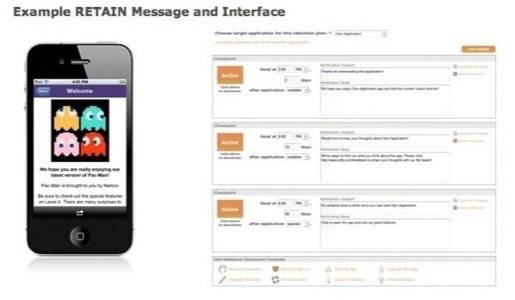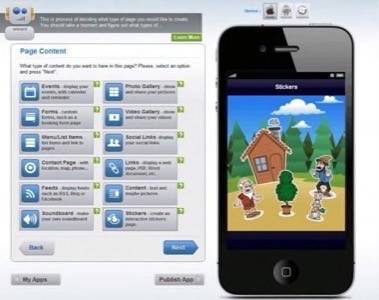It’s been a big week for mobile app developers, thanks, for the most part, to the AppNation conference held in San Francisco. From Qualcomm’s AR platform to Opera’s new developer program, many of these mobile announcements made headlines across the Web. Others, however, flew a little under the radar. Below we’ve rounded up some of our favorite stories from the past week, including those from the event and elsewhere.

Qualcomm Releases AR for Android
Qualcomm commercially released its augmented reality platform for Android this week, and revealed the first app to be built with the technology. This showcase app, “Mavs AR,” is a game built in collaboration with the Dallas Mavericks. To use the app, you simply point your phone at your Dallas Mavericks ticket to see a virtual game appear. The platform offers high-performance, interactive 3D experiences, says Qualcomm, and integrates with the Android SDK and NDK. It also supports development using the Unity 3 game development tool. The platform is available for download now at: http://developer.qualcomm.com/dev/augmented-reality.

Opera Launches Appcelerate Program for Mobile Developers
Opera Software launched Appcelerate at AppNation, a new program to help mobile developers promote their apps through the Opera Mobile Store. Developers can now target their content to various channels, geographies, handsets or operating systems. Opera is also offering, for a limited time, matching co-marketing funds for qualified developers. Pay-per-download campaign pricing means you only have to pay when an end user downloads your app. Developers can learn more about the program here.

Xtify Launches Retention Tool for Apps
Developers can use Xtify’s new user retention tool called RETAIN to keep app customers engaged with the application by sending customized messages at pre-configured times. For example, a message could be sent out to a user who hasn’t launched the app in 2 weeks, or who installed the app 30 days ago. Developers can also use it to send other messages, like welcome greetings or requests to “rate the app.” RETAIN supports iOS, Android and BlackBerry applications and is currently available for free.

GetJar Goes Social to Aid in App Discovery
Independent app store GetJaradded a social element to its mobile Web store, allowing users to connect with their Facebook friends within the store. Users can then see what each other are downloading, and can also share their download activity back to Facebook. With GetJar’s My Apps feature, users can also see their history of downloads in the mobile version of the store.
Appsgeyser Launches API
Appsgeyser launched an API at AppNation, which allows power users to create hundreds (or thousands) of mobile applications at once. Currently in private beta, the API lets developers create apps using existing Web content. To demonstrate the technology, YoWindow, a company that had previously developed Web-based weather widgets, transformed that content into over 100 apps in less than 2 hours. Appsgeyser launched in February 2011 and already has over 17,000 apps created through its service, with more than one million installs and 100,000 active daily users.
Sencha Releases JS 4
Sencha says it’s working to close the gap between what you can deliver within a Web browser and what you can deliver in a native application. With its release of JS 4, that gap is smaller. The biggest software release from the company in the past 2 years, JS 4 makes it easier to develop cross-platform apps using the Sencha JavaScript framework. Highlights of the release include major enhancements to the drawing and charting capabilities of Ext JS (including plug-in free charting, sans Flash), comprehensive cross-browser support, theming, and an improved data package.
Appsbar App Building Tool Launched
Appsbar is new free tool for building mobile applications using a “wizard” format that walks you through each step of the app building process. The tool is meant to fill the gap between the expensive, professionally-produced apps and the overly-simplified apps that exist today. App creators can customize their apps with background colors, fonts, or their own images, plus as many or as few functions and pages as they choose. Currently, Appsbar supports iPhone, Android and Windows phones. You can see some of the end results of using Appsbar over on Appsbar’s Facebook page.


















